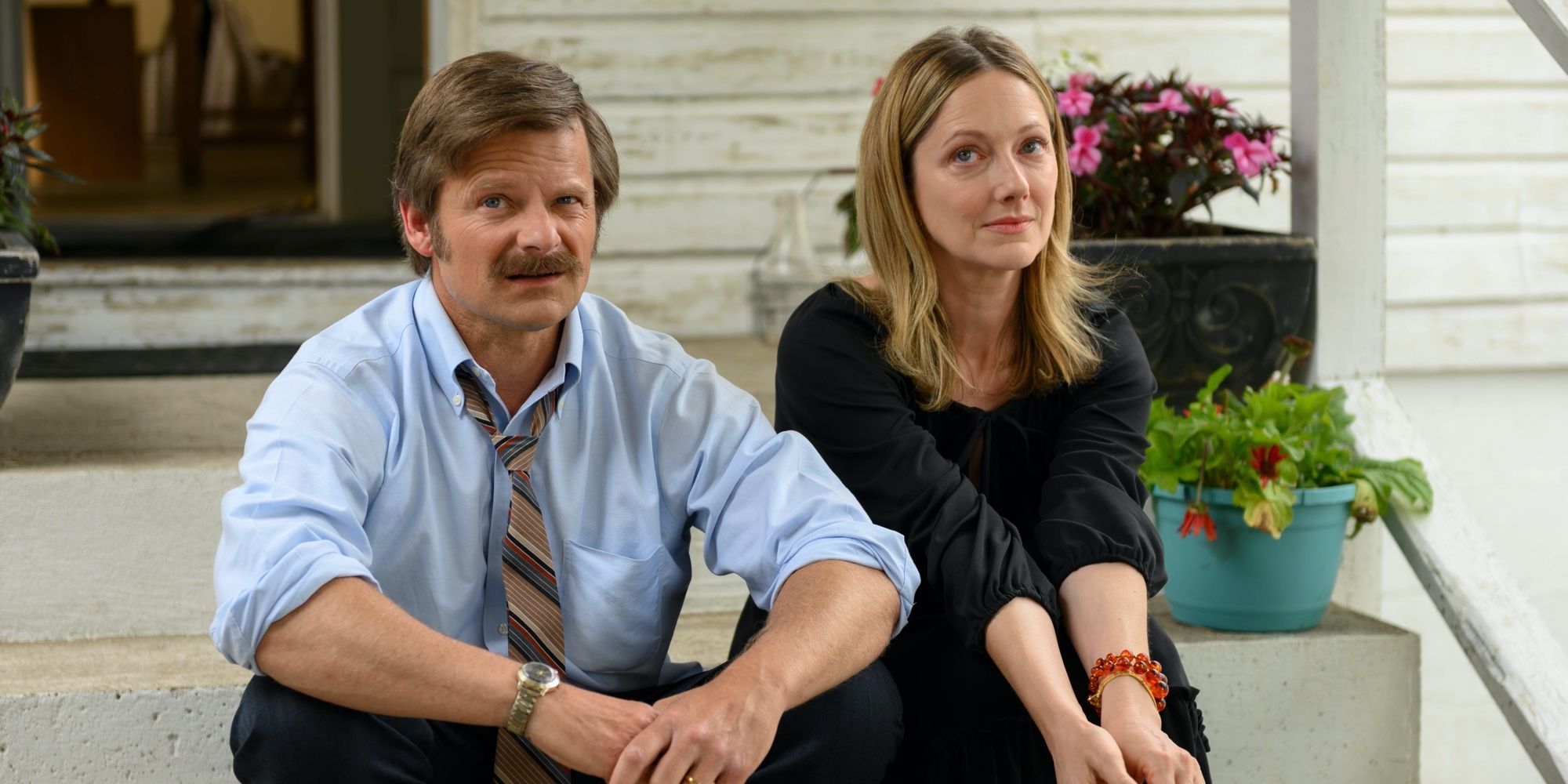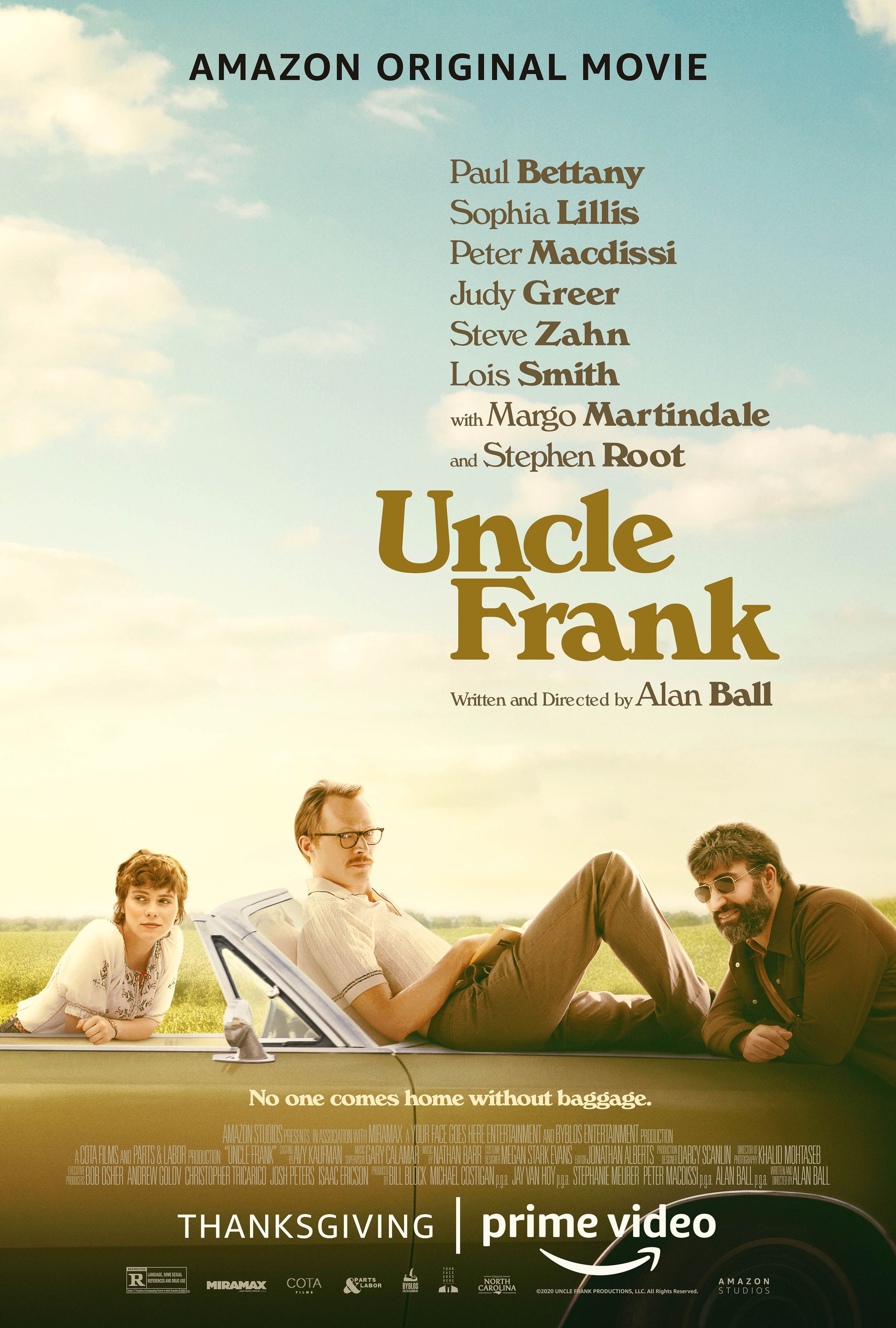Writer and director Alan Ball shares a personal piece of his past in the comedic drama Uncle Frank, which will premiere through Amazon video on November 25. The story follows Frank Bledsoe (Paul Bettany) as he goes home for the funeral of his family’s patriarch, only to find his secret lover is there too.
The ensemble cast is full of celebrated actors, such as Judy Greer and Lois Smith, playing family members and acquaintances. The established performers spoke to Screen Rant about bringing Ball’s story to life and the relevance of its themes today.
Tell me a little bit about your characters and how they connect with Frank.
Lois Smith: My character, Aunt Butch, is somebody that Frank knew his whole life. Alan told me once, he looked up into her thick glasses, and they were kind of alarming. That was an early clue.
Judy Greer: I play Kitty. I am Frank's sister-in-law, so I'm a little bit of an outsider in the family too. I've been a part of the family for a really long time, but I feel probably like I can relate to Frank a little bit more.
Alan Ball wrote and directed Uncle Frank, and it's such a personal story to him. Lois, you've worked with him on True Blood in the past. But can you both tell me a little bit about how having him being the director and writer helped shape your characters?
Lois Smith: Oh, absolutely. First of all, he wrote it, so he gave us these words. And that is such an important part of it. And then he is himself, who is - there he is. We can know him, see him, read his words; be on set with him, be directed by him. It's a real privilege. He made it. Isn't that lovely?
Judy Greer: Definitely. I mean, when you have the writer also directing, you definitely want to get your lines right. You don't want to mess up, because they know. And I liked having him there. because you can immediately gauge if you're getting it right.
This is a really personal story he wrote based on his own family and a lot of his own experiences, and with his father too. [I want] to make sure that I'm representing everything correctly, and that I'm not - sometimes, I've heard of "commenting on a character," but I'm actually being a character. I was feeling pretty proud when I'd look up after a take and he'd be happy or smiling or just kind of overwhelmed.
Once, he said it was just so incredible to watch us all together sitting around the table. So, that was very flattering and a real honor.
Lois, what did you want to bring to the role of Aunt Butch that wasn't necessarily on the page?
Lois Smith: I guess continuity, maybe. That's a funny thing to say, because it has to connect all the grimness, all the funniness, all the curiosity, and all the strictness. Yes, I guess that's what I'd say.
Judy, how did you think that setting the film in the 1970s was right for the story and how relevant it still feels to this day?
Judy Greer: Well, the story is very relevant. We're still dealing with equality in the LGBTQ community, and people are still experiencing that: not coming out to their families in fear of that, and not being accepted by their families. I think it's incredibly relevant.
I think setting stories like this - if it's not a personal story, which in this case, it was for Alan - you do get to skirt around all of those cheats with technology too. You're like, "Well, someone could have just found him on Instagram and seen that he was at the Gay Pride March in New York City," you know what I mean? I find that we're all leaning on that a lot with storytelling, and it's tricky. So, I enjoy these pieces when you can go back in time enough that people have to use their own courage to tell a story instead of their phone. Because we're all doing this on zoom right now.


